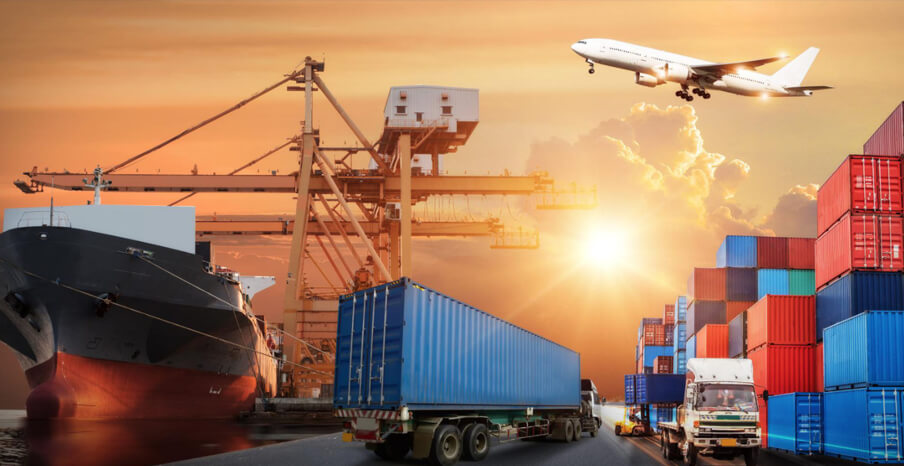Preparing for EU Exit – Trading Goods

The trading environment for many NI businesses will change from 1 January 2021 as a result of the end of the EU Exit transition period. Whilst many points of detail have still to be confirmed, a clearer picture is starting to emerge.
This feature considers trade in goods and highlights what businesses must do in the weeks ahead.
What is Changing?
The NI Protocol and the wider Withdrawal Agreement means that there will be changes to the arrangements for moving goods to and from Northern Ireland (NI). It is essential that businesses start to get ready as the changes are varied and many are specific to the type of good or product being moved.
Moving goods from Great Britain to Northern Ireland
The main changes are for goods moving from Great Britain (GB) to NI. New digital customs processes, safety and security declarations and regulatory controls will be put in place from 1 Jan 2021. For a business unfamiliar with customs, there are more than 50 items of information needed for a declaration!
There may also be a tariff to pay on imports from GB if the good is subsequently moved onto the EU market – the detailed criteria on such potential tariffs are currently being agreed by the Joint Committee.
To help businesses adjust to the changes, a free Trader Support Service (TSS) is being made available by HMRC. You need to register for the service.
The free Trader Support Service:
- will help if you move goods between Great Britain and Northern Ireland, or bring goods into Northern Ireland from outside the UK
- will be free to use and guide you through any changes to the way goods move between Great Britain and Northern Ireland
- can complete declarations on your behalf
It can help if you:
- are moving the goods yourself
- act on behalf of someone
- send parcels between Great Britain and Northern Ireland, or bring parcels into Northern Ireland from outside the UK, using Royal Mail or an express operator
You can also apply for up to three HMRC grants if your business completes customs declarations.
They cover:
- training that helps your business to complete customs declarations and processes
- hiring new staff to help your business complete customs declarations
- IT improvements to help your business complete customs declarations more efficiently
Moving goods from Northern Ireland directly to Great Britain
Further direction is awaited on whether Exit Summary Declarations will be required for the movement of goods, and the criteria for how a NI qualifying good is defined.
It is the UK Government’s intention that no new formalities will be put in place.
Trading with Ireland and the rest of the EU
Trade in goods between NI, Ireland and the rest of the EU will largely continue as it does currently. There will be no customs processes, tariffs or other new formalities on these movements. This provides a level of certainty on this aspect of NI’s external goods trade.
Trading with countries outside of the UK and EU
Trade in goods between NI and countries outside of the UK and EU will also largely continue as it does currently.
For goods being imported from these countries for final use in Northern Ireland, the import tariff may change. Further details can be found from the UK Global Tariff.
If you utilise preferential tariff rates or other benefits of EU-third country trade agreements, you should check if these will still apply after 31 December 2020.
Another area to consider is VAT
The NI Protocol creates a new dual system for the treatment of VAT on goods. The system of charges and accounting for different movements will change. Goods moving between NI and GB, for example, will now be classified as imports and exports rather than goods moving freely within the UK. Detailed guidance is expected in the months ahead and we have a special webinar on this topic on 8 October.
What Can I Do Now?
The most important thing to do is start getting ready or revisit previous plans and activities. Don’t delay. In addition to the recommendations above, there are a number of key actions you can take:
- map your cross border supply chains and customer routes and understand where and how often goods are crossing borders.
- develop an understanding of customs basics including classifying and valuing goods - Classify Your Goods for Import/Export.
- start collecting data on your products and the routes they use.
- decide how you will handle the new processes: internally, through an external intermediary and/or via the new Trader Support Service.
- speak to your logistics provider to understand how goods will move and what they need from you to ensure that goods flow smoothly.
What’s Next?
We will continue to update our dedicated Prepare for EU Exit pages as more information and detail on the end of the transition period emerges. You can also access information and updates on our free business resource website nibusinessinfo
We also have a series of webinars this autumn, starting 25 September. You can register now for webinars on




Comments